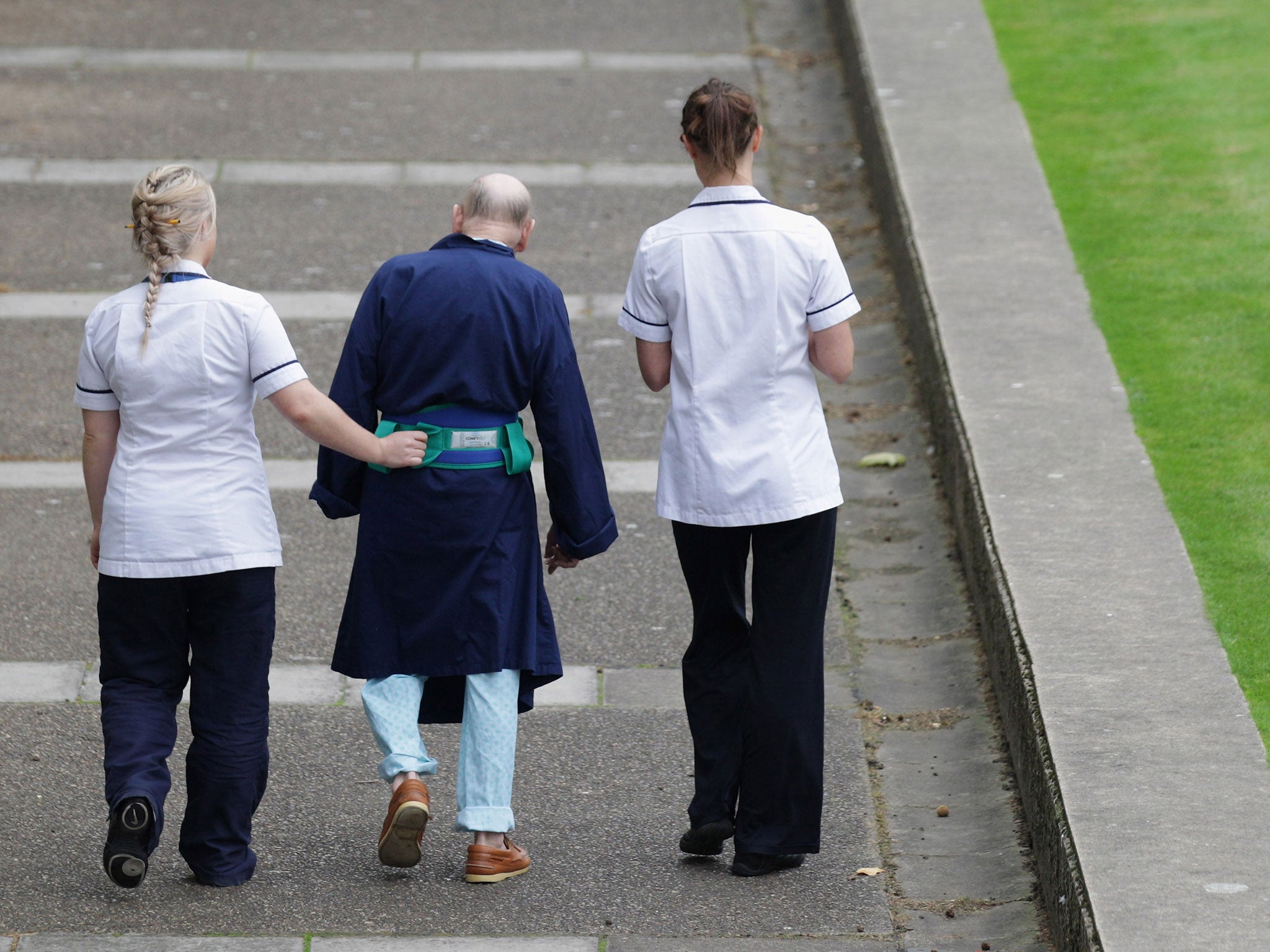We need to talk about the reality of caring for someone with dementia
Around 40 per cent of carers will develop clinical depression or anxiety

Your support helps us to tell the story
From reproductive rights to climate change to Big Tech, The Independent is on the ground when the story is developing. Whether it's investigating the financials of Elon Musk's pro-Trump PAC or producing our latest documentary, 'The A Word', which shines a light on the American women fighting for reproductive rights, we know how important it is to parse out the facts from the messaging.
At such a critical moment in US history, we need reporters on the ground. Your donation allows us to keep sending journalists to speak to both sides of the story.
The Independent is trusted by Americans across the entire political spectrum. And unlike many other quality news outlets, we choose not to lock Americans out of our reporting and analysis with paywalls. We believe quality journalism should be available to everyone, paid for by those who can afford it.
Your support makes all the difference.Like most people, I looked forward to being a parent and when looking after children had the pleasure of watching them grow up, work out who they were and become independent. No one marries looking forward to the day they will care for their partner with dementia, no child hopes to grow up to be a family carer of their parent with dementia and yet it is a very common experience.
Families are the essential and main providers of (unpaid) help for people with dementia. There are around 600,000 of these family carers in the UK, and about 23 million adults who have a close friend or relative with the illness.
It is difficult to understand the profound effect caring can have on family members. Looking after someone that you love with a physical illness can be exhausting but can also bring people closer, as the intimacy forced by the illness requirements can be rewarding for both the person cared for and the carer.
Caring for someone with dementia encompasses much more than hands-on work. You have to think ten steps ahead: family carers help avert crises by ensuring that the person with dementia is not asked to do things they are unable to and will fail at, that they are safe, so that for example, food is available, bills are paid, and the gas is not left on and that enjoyable and possible activities are provided for someone who can no longer initiate them.
What can make this even harder is that people with dementia often do not realise they are ill and resist help. Essential help may feel like intrusion if you are a person with dementia who lacks insight into their condition and is convinced they could do it themselves. Similarly, if you do not remember where you have put something, you may blame the person you see most and think they have stolen it.
People with dementia can repeatedly act in what seems a pointless way, for example, they may ask the same question again and again, or pace restlessly. Dementia leads to problems with the sleep cycle and people with dementia are often up at night. Aside from being blamed and shouted at or sleep deprived, the family carer may feel ashamed of the illness and isolate themselves from former friends and colleagues.
While many family carers derive satisfaction from caring from someone they love, it is not surprising that around 40 per cent develop clinical depression or anxiety. This may mean they are unable to continue caring, and so individuals with dementia may have to move to a care home. What is surprising is that so often we don’t talk about caring, or about its effect on carers.
Much of my research at UCL is about trying to understand what we can do to help family carers. A new programme from our team, START (Strategies for Relatives) gives therapy to carers soon after their relatives are diagnosed with dementia. The results, published in the Lancet Psychiatry, show eight brief sessions with a psychologist can stop things spiralling out of control and carers are seven times less likely to develop depression. Carers using the session often had an “aha!” moment when they realised a person with dementia cannot manage any change in their own behaviour and they need help to do it. They used their new skills after the therapy, with one carer saying it helped them to acknowledge and live with their emotions “I felt it OK to be angry, upset .. felt less guilty”. Another told us he learnt to be more assertive and talk to doctors.
Unpaid carers for people with dementia save the economy 11 billion per year but this is the first evidence-based structured programme to help them. We are currently using it in Camden and Islington NHS Foundation Trust and UCL staff funded by the Alzheimer’s Society are teaching it to many other professionals. Family carers who are looking after people with dementia are important and face multiple difficulties which are too ubiquitous to ignore. We need to talk about what they do and help them, not in a haphazard way but using evidence.
Join our commenting forum
Join thought-provoking conversations, follow other Independent readers and see their replies
Comments